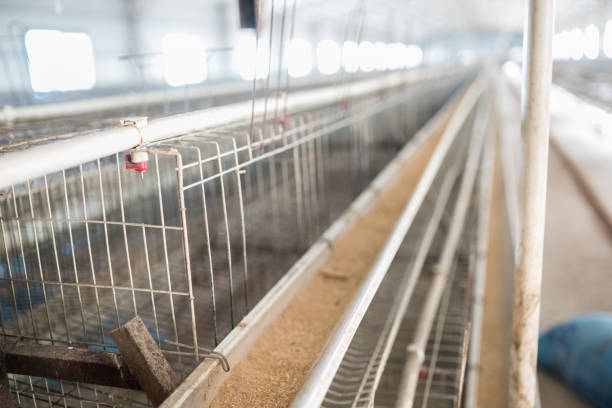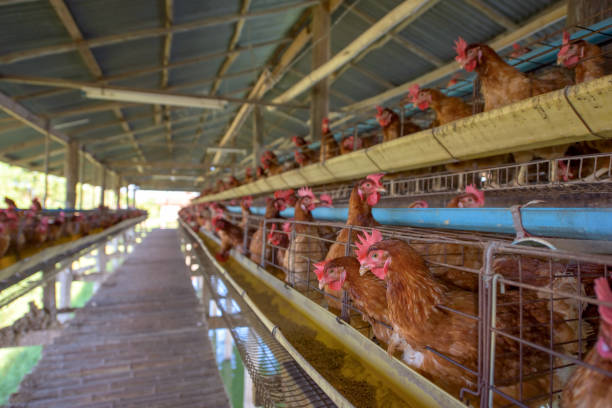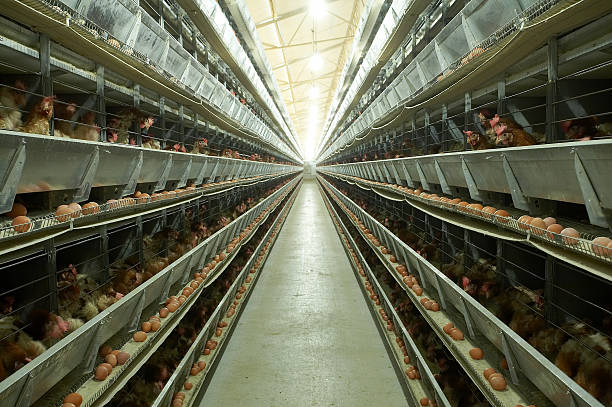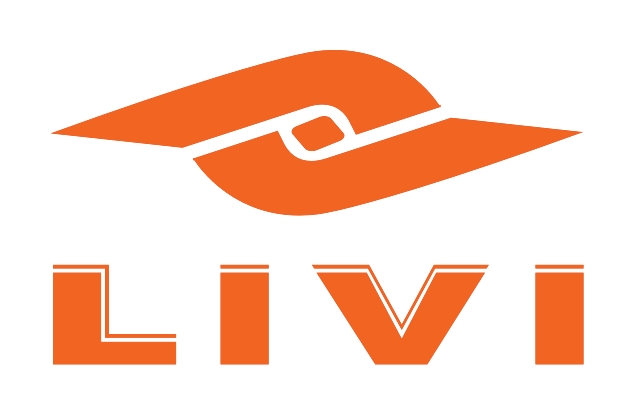## Sustainable Layer Farming in Ghana: A Complete Business Plan
Ghana presents a promising landscape for poultry farming, particularly in the layer sector. With increasing domestic demand for eggs and a growing awareness of food security, a well-structured layer farming business in Ghana can be both profitable and sustainable. This comprehensive business plan outlines the key components necessary for establishing and running a successful and sustainable layer farm in Ghana, focusing on practical strategies, challenges, and solutions tailored to the local context.

**1. Executive Summary:**
This business plan outlines the establishment of a sustainable layer farm in [Specific Region, Ghana], focusing on producing high-quality eggs for the local market. The plan details the project’s objectives, target market, production strategy, management structure, financial projections, and sustainability considerations. The farm will adopt modern and efficient farming practices, prioritizing animal welfare, environmental responsibility, and community engagement. Ultimately, this venture aims to contribute to Ghana’s food security while generating sustainable profits and creating employment opportunities.
**2. Company Description:**
[Farm Name], a newly established agricultural enterprise, aims to be a leading producer of high-quality eggs in Ghana. We are committed to implementing sustainable farming practices that prioritize animal welfare, environmental stewardship, and community development. Our core values include:
* **Quality:** Producing eggs that meet the highest standards of freshness, nutrition, and safety.
* **Sustainability:** Minimizing our environmental footprint through responsible resource management and waste reduction.
* **Animal Welfare:** Providing a comfortable and healthy environment for our chickens, ensuring their well-being.
* **Community Engagement:** Contributing to the local economy by creating jobs and supporting community initiatives.
* **Innovation:** Continuously seeking ways to improve our efficiency and sustainability.
**3. Market Analysis:**
**3.1 Target Market:**
The primary target market for [Farm Name] will be the local population of [Specific Region, Ghana], encompassing:
* **Households:** Providing a reliable source of affordable and nutritious eggs for daily consumption.
* **Restaurants and Hotels:** Supplying eggs to the hospitality industry for breakfast service and culinary applications.
* **Bakeries and Food Processors:** Meeting the demand for eggs as ingredients in various food products.
* **Retail Outlets:** Partnering with supermarkets, grocery stores, and local markets to distribute eggs to consumers.
**3.2 Market Size and Trends:**
The demand for eggs in Ghana is steadily increasing, driven by population growth, rising incomes, and a growing awareness of the nutritional benefits of eggs. The current market size is estimated at [Insert Market Size Data] and is projected to grow at a rate of [Insert Growth Rate Data] per annum. Key trends in the market include:
* **Increased Consumption:** Ghanaians are consuming more eggs as a source of protein and essential nutrients.
* **Preference for Freshness:** Consumers are increasingly demanding fresh, locally produced eggs.
* **Demand for Quality:** There’s a growing awareness of egg quality and safety standards.
* **Price Sensitivity:** Price remains a significant factor influencing consumer purchasing decisions.
**3.3 Competition:**
The layer farming industry in Ghana is characterized by a mix of small-scale and large-scale producers. Key competitors include:
* **Local Farmers:** Small-scale farmers who produce eggs using traditional methods.
* **Commercial Farms:** Larger-scale farms employing modern farming practices.
* **Imported Eggs:** Eggs imported from neighboring countries, primarily during periods of high demand.
**3.4 Competitive Advantages:**
[Farm Name] will gain a competitive advantage by:
* **High-Quality Eggs:** Ensuring consistent egg quality through proper feeding, hygiene, and handling practices.
* **Freshness:** Delivering fresh eggs directly to customers, minimizing the time between production and consumption.
* **Competitive Pricing:** Offering eggs at competitive prices to attract price-sensitive consumers.
* **Strong Customer Relationships:** Building strong relationships with customers through excellent service and reliable supply.
* **Sustainable Practices:** Promoting our commitment to animal welfare and environmental responsibility, appealing to ethical consumers.
**4. Products and Services:**
The primary product of [Farm Name] will be table eggs of various sizes (small, medium, large, and extra-large) to cater to different consumer needs. We may also consider offering the following value-added products and services:
* **Fertilized Eggs:** For farmers looking to hatch their own chicks.
* **Processed Egg Products:** Producing products like boiled eggs or pickled eggs in the future.
* **Delivery Services:** Offering convenient delivery options to retail outlets and restaurants.
* **Farm Tours:** Providing educational tours to schools and community groups to promote awareness of sustainable farming practices.
**5. Production Plan:**
**5.1 Farm Location and Infrastructure:**

The farm will be located in [Specific Region, Ghana], chosen for its:
* **Accessibility:** Proximity to markets and transportation infrastructure.
* **Availability of Resources:** Adequate water supply, electricity, and access to feed sources.
* **Suitable Climate:** A climate conducive to poultry farming.
* **Land Availability:** Sufficient land for expansion and future development.
Infrastructure will include:
* **Poultry Houses:** Constructed using durable materials and designed to provide adequate ventilation, lighting, and temperature control. The use of layer cages will be implemented to maximize space and facilitate egg collection. Emphasis will be placed on ventilation and sanitation. Consider using naturally ventilated houses with good insulation or climate-controlled houses for optimal performance. Explore options such as tunnel ventilation with evaporative cooling for hot climates.
* **Feed Storage Facilities:** Secure and dry storage for poultry feed.
* **Egg Collection and Sorting Area:** A clean and sanitized area for collecting, sorting, and packaging eggs.
* **Waste Management System:** An environmentally friendly system for managing poultry waste, potentially including composting or biogas production.
* **Water Supply System:** A reliable source of clean water for drinking and cleaning.
* **Biosecurity Measures:** Fencing, foot baths, and other measures to prevent the spread of disease.
* **Office and Staff Accommodation:** Facilities for managing the farm operations and housing staff.
**5.2 Layer Cages and Equipment:**

The selection and implementation of appropriate layer cages are crucial for maximizing egg production and minimizing disease outbreaks. We will utilize [Type of Cages, e.g., A-type or H-type] layer cages, known for their efficiency, space utilization, and ease of management. Livi Machinery is a renowned supplier of high-quality layer cages, and we will consider their cages which offer features such as:
* **Automated Feeding Systems:** Ensures consistent and efficient feed distribution.
* **Automated Drinking Systems:** Provides continuous access to clean water.
* **Automated Egg Collection Systems:** Reduces labor costs and minimizes egg breakage.
* **Manure Removal Systems:** Improves hygiene and minimizes disease risk.
Additional equipment will include:
* **Feed Mills:** For grinding and mixing feed ingredients.
* **Egg Grading and Packaging Machines:** For efficient egg grading and packaging.
* **Incubators and Hatchers:** If the farm intends to breed its own chicks.
* **Transport Vehicles:** For transporting eggs and feed.
**5.3 Flock Management:**
* **Breed Selection:** Selecting a high-producing layer breed suitable for the Ghanaian climate and market demand. Common breeds include Lohmann Brown, Hy-Line Brown, and Bovans Brown.
* **Chick Sourcing:** Sourcing healthy, disease-free chicks from reputable hatcheries.
* **Feeding Program:** Implementing a balanced feeding program that meets the nutritional requirements of the layers at each stage of their life cycle. Use high-quality commercial layer feed supplemented with locally sourced ingredients.
* **Vaccination Program:** Implementing a comprehensive vaccination program to protect the flock against common poultry diseases such as Newcastle disease, Gumboro disease, and avian influenza.
* **Lighting Program:** Optimizing the lighting schedule to stimulate egg production.
* **Temperature Control:** Maintaining optimal temperature levels in the poultry houses.
* **Ventilation:** Ensuring adequate ventilation to remove ammonia and maintain air quality.
* **Record Keeping:** Maintaining detailed records of egg production, feed consumption, mortality, and other key performance indicators.
**5.4 Waste Management:**
Proper waste management is essential for environmental sustainability and biosecurity. The farm will implement a comprehensive waste management plan that includes:
* **Manure Management:** Composting manure and using it as fertilizer for crops or selling it to local farmers. Consider anaerobic digestion to produce biogas.
* **Dead Bird Disposal:** Properly disposing of dead birds through composting, incineration, or burial.
* **Water Management:** Minimizing water usage and properly treating wastewater.
* **Litter Management:** Regularly removing and replacing litter in the poultry houses.
**6. Marketing and Sales Strategy:**
* **Branding and Packaging:** Develop a strong brand identity and attractive packaging to differentiate our eggs from competitors.
* **Distribution Channels:** Establishing relationships with supermarkets, grocery stores, restaurants, hotels, and local markets.
* **Direct Sales:** Selling eggs directly to consumers through a farm shop or online platform.
* **Promotional Activities:** Participating in agricultural fairs, farmers’ markets, and community events.
* **Advertising:** Advertising in local newspapers, radio stations, and online platforms.
* **Social Media Marketing:** Using social media to raise awareness of our brand and connect with customers.
**7. Management Team:**
The management team will consist of experienced professionals in poultry farming, business management, and marketing. Key personnel include:
* **Farm Manager:** Responsible for overseeing all aspects of farm operations, including production, flock management, and waste management.
* **Sales and Marketing Manager:** Responsible for developing and implementing the marketing and sales strategy.
* **Financial Manager:** Responsible for managing the farm’s finances and preparing financial reports.
* **Veterinarian Consultant:** Providing veterinary services and advising on flock health management.
**8. Financial Projections:**
Financial projections will include:
* **Start-up Costs:** Detailed breakdown of all initial expenses, including land acquisition, construction, equipment purchase, chick procurement, and initial operating expenses.
* **Operating Costs:** Estimate of annual operating expenses, including feed costs, labor costs, utility costs, veterinary expenses, and marketing costs.
* **Revenue Projections:** Forecast of egg sales revenue based on projected egg production, market prices, and sales volume.
* **Profit and Loss Statement:** Projected profit and loss statement for the first three to five years of operation.
* **Cash Flow Statement:** Projected cash flow statement for the first three to five years of operation.
* **Break-Even Analysis:** Determination of the break-even point for egg production and sales.
* **Return on Investment (ROI):** Calculation of the projected return on investment.
**9. Funding Request:**
This section will outline the amount of funding required and the proposed use of funds. Sources of funding may include:
* **Personal Investment:** Investment from the farm owners.
* **Bank Loans:** Loans from commercial banks.
* **Government Grants:** Grants from government agencies supporting agricultural development.
* **Investment from Private Investors:** Seeking investment from individuals or companies interested in the poultry industry.
**10. Sustainability Plan:**
Sustainability is at the core of [Farm Name]’s operations. The sustainability plan includes:
* **Environmental Sustainability:** Implementing practices to minimize the farm’s environmental impact.
* **Animal Welfare:** Providing a comfortable and healthy environment for the chickens.
* **Social Responsibility:** Contributing to the local economy and supporting community initiatives.
* **Economic Sustainability:** Ensuring the long-term profitability and viability of the farm.
**11. Risk Assessment and Mitigation:**
This section identifies potential risks and outlines strategies for mitigating them. These risks may include:
* **Disease Outbreaks:** Implementing strict biosecurity measures and vaccination programs.
* **Fluctuations in Feed Prices:** Establishing relationships with multiple feed suppliers and exploring alternative feed sources.
* **Market Price Volatility:** Developing a strong marketing strategy and diversifying sales channels.
* **Equipment Failure:** Implementing a regular maintenance program and having contingency plans in place.
* **Climate Change:** Implementing measures to adapt to changing weather patterns, such as providing shade and ventilation.
**12. Conclusion:**
[Farm Name] has the potential to be a successful and sustainable layer farm in Ghana. By implementing modern farming practices, prioritizing animal welfare and environmental responsibility, and building strong relationships with customers, we can achieve our goals of producing high-quality eggs, generating sustainable profits, and contributing to Ghana’s food security. This business plan serves as a roadmap for achieving our vision and creating a thriving agricultural enterprise. The proper implementation of appropriate layer cages, sourced perhaps from a reliable supplier like Livi Machinery, can greatly contribute to the farm’s success. We are confident that with proper planning, execution, and management, [Farm Name] will become a leading and sustainable producer of eggs in Ghana.






